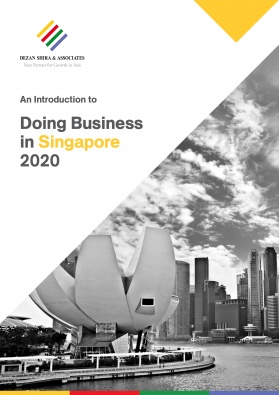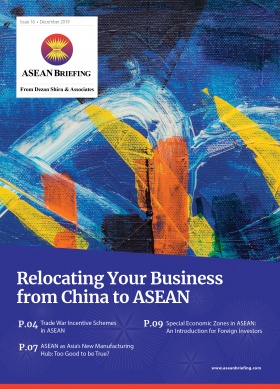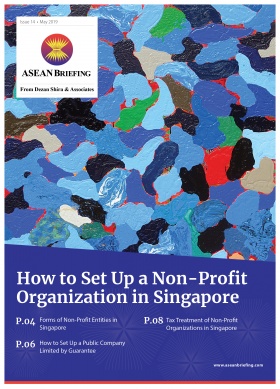Singapore Launches Fortitude Budget: Salient Features
- Singapore launched its latest stimulus package valued at S$33 billion (US$23 billion) to dampen the economic impact of the virus.
- This latest package is an enhancement of the previous three, aimed at supporting workers and businesses through grants, offsetting of wages, and rental reliefs.
- Investors should seek advice on how they can benefit from the new regulations.
On May 26, 2020, the government of Singapore issued the Fortitude Budget, which functions as the country’s fourth stimulus package since February 2020.
The latest package, estimated at S$33 billion (US$23 billion), aims to provide more support for workers and businesses as the country starts to relax lockdown measures after June 1, 2020. The support measures include extending the Job Support Scheme (JSS) program, helping businesses with their immediate cash flow problems through rental reliefs and grants, and providing financial assistance to the community.
Together with the Unity, Resilience, and Solidarity budgets issued earlier in the year, Singapore has dedicated close to S$100 billion (US$70 billion) or nearly 20 percent of GDP to national stimulus support. The Finance Minister Heng Swee Keat has predicted the economy will shrink between 4-7 percent this year, making it the worst recession since independence.Investors should seek the help of legal advisors to understand how they can benefit from the new regulations.
Immediate support to fight COVID-19
An additional S$800 million (US$564 million) has been set aside for the COVID-19 Support Grant, which supports citizens and permanent residents who:
- Have lost their jobs;
- Are on unpaid leave; or
- Have had their salary significantly reduced.
Eligible residents can receive S$800 (US$564) per month for three months.
Supporting enterprises
To support businesses with immediate cashflow problems and costs, the government will extend foreign worker rebates and relief for rents. Furthermore, startups are eligible for more financing.
Foreign worker levy and rebates
The government extended the foreign worker levy (FWL) by up to two months until July for businesses that are unable to resume operations after the lockdown is lifted. There will be a 100 percent waiver and S$750 (US$525) rebate in June 2020 and a S$375 rebate (US$264) in July.
Deferment of CPF contributions
The planned increase in Central Provident Funds (CPF) contribution rates for senior workers (aged 55-70) will be deferred from January 1, 2021, to January 1, 2022.
The CPF is a compulsory saving and pension plan for citizens and permanent residents. All employees are entitled to CPF contributions from their employers.
Financial support for startups
In addition to the S$4.5 billion (US$3.1 billion) designated for startups through other government schemes, such as the Temporary Bridging Loan and Enterprise Financing Scheme, a further S$285 million (US$201 million) will be allocated for promising startups by co-investing with the private sector.
The government will also provide a S$300 (US$211) monthly bonus, over five months, for wet markets, coffee shops, industrial canteens, and stallholders in hawker centers if they adopt e-payment solutions in their business.Moreover, businesses in the food services and retail sectors can receive a payout of up to S$5,000 (US$3,500) to help digitalize their business.
Rental relief for SMEs
The government has allocated S$2 billion (US$1.4 billion) for small and medium-sized (SMEs) businesses with rental costs. This includes the property tax rebate for 2020.
SME tenants who qualify will be eligible for the offset of two months’ worth of rent for commercial properties, and the offset of one months’ worth of rent for SME tenants of office and industrial properties.
Enhancement of Jobs Support Scheme
The government has extended the JSS program for one month to cover wages in August 2020. Under this scheme, the government will cover 75 percent of the employees’ wages on the first S$4,600 (US$3,223) of monthly salaries. This is only available for companies that are not able to operate after the lockdown.
The JSS scheme support will be increased from the 25 percent level to 50 or 75 percent for the aerospace, retail, and marine and offshore sectors.
Skills training
In recognizing that the employment landscape will look different in the future, the government is determined to provide training programs to develop local human resources.
SGUnited jobs
This package aims to support 100,000 jobseekers, and provide skills training and traineeship for recent and new graduates. SGUnited jobs is targeted to create 40,000 jobs in 2020, of which 15,000 will be available in the public sector.
The private sector will work with hiring agencies to provide 25,000 jobs.
SGUnited traineeships
The program aims to provide 21,000 traineeships for first-time Singaporean job seekers. Applications will open from June 1, 2020. The provision for a further 4,000 traineeships for local mid-career jobseekers has been made to improve their skills and help them start new careers.
SGUnited skills
This new program will provide 30,000 jobseekers training courses to upgrade their skills. Applicants will be given S$1,200 (US$846) to cover basic expenses for course durations between 6-12 months.
Incentives to hire local employees
Singapore companies will be given financial incentives if they hire local workers who have completed the traineeship and training programs.
If employers hire workers under the age of 40 years, the government will pay 20 percent of the monthly salary for six months, capped at S$6,000 (US$4,200). Employers who hire workers above the age of 40 will be eligible for 40 percent of the monthly salary for six months, capped at S$12,000 (US$8,400).
More assistance for the community
Each household with at least one Singaporean citizen will receive a one-off S$100 (US$70) utility credit to help pay for utility bills.
The government will also accelerate the timeline for secondary students to own a digital device as well as support for senior citizens to build their digital literacy through one-to-one coaching and group learning activities.
About Us
ASEAN Briefing is produced by Dezan Shira & Associates. The firm assists foreign investors throughout Asia and maintains offices throughout ASEAN, including in Singapore, Hanoi, Ho Chi Minh City and Jakarta. Please contact us at asia@dezshira.com or visit our website at www.dezshira.com
- Previous Article Investment Opportunities in Thailand
- Next Article Singapore’s Fintech Solidarity Grant: Eligibility and Incentives








